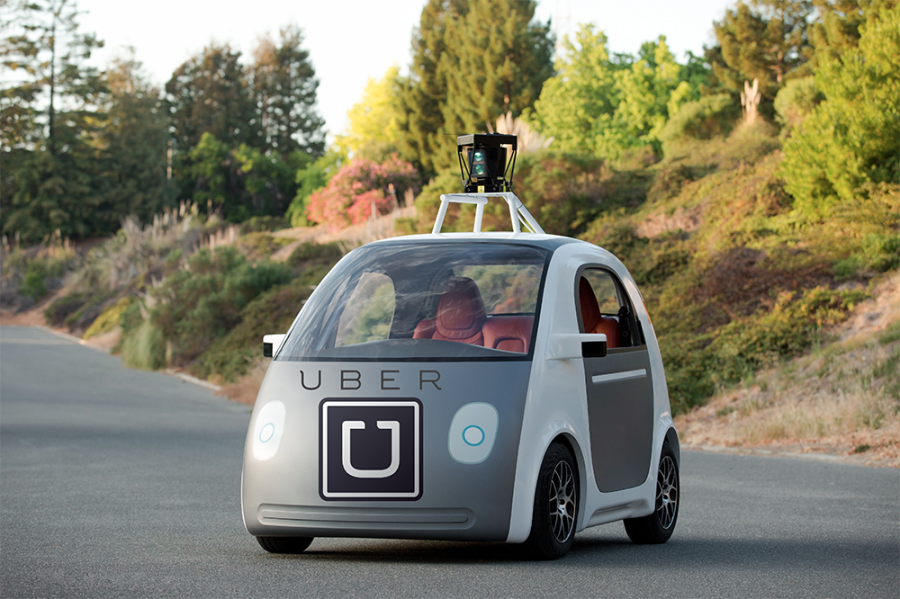That's a fairly provocative title for a blog entry. The entry makes several points that have got me to thinking about where we may be heading. (Note that his citations link the reader to the source materials for many of his statements.) Here's a sample from the first paragraph......
"Autonomous cars will be commonplace by 2025 and have a near monopoly by 2030, and the sweeping change they bring will eclipse every other innovation our society has experienced. They will cause unprecedented job loss and a fundamental restructuring of our economy, solve large portions of our environmental problems, prevent tens of thousands of deaths per year, save millions of hours with increased productivity, and create entire new industries that we cannot even imagine from our current vantage point."
See:
Zack Kanter

Comments
And don't forget about artificial intelligence taking more jobs.
Consider -- you use a human taxi driver -- a portion of his income is taxed. You use an automated driver, no such tax. That needs to change. Humans should not have a higher tax rate than machines.
The Feds (and the states) need to IMPUTE income on these cars, then levy income and payroll taxes on these machines ---- any machine which effectively replaces a human, rather than simply is a tool for an employed human, needs to be taxed in such a way.
Tax expenses is defined by govt fiat. So, dis-allow depreciation expense (for tax purposes) of human-replacing machines.
In fact, we can start by imputing income today on the ATMs (automated teller machines). Also add in taxing the self-check out stands at our local grocers. Impute income and tax them. -- and prohibit the machine owners from affixing specific "fees" for their use (after all, they don't affix a specific cost for employing humans).
Tax the machines!
Tax them enough, we may be able to lower tax rates for humans....
On a slightly more serious note, if I ever notice car next to me with no driver on the highway, it will be very unsafe since I will probably drive off the road.
Machines currently exist only as property of people. It's possible to tax people when they use machines (as a tax on car rentals would). Distinction between a machine replacing a human and one employed by a human is ambiguous.
Humans have used tools since the advent of the species. There's no reason to think of this as a problem.
Let's think for a second here. How many of us fantasize about owning a driverless car. If you put a dagger to my throat I might actually "crave" about the I watch.
Bottom line, the only way a driverless car goes on the road, is if the insurance companies allow it. Which is another way of saying they stand to make more money from it. Who is liable when there is a wreck? Let's see...
Passenger who owns the driverless car.
Passenger who borrows / hires the driverless car
Manufacturer of the driverless car
Uber / Taxi company that decides to use the car
The other car driver who cannot drive as well as a machine
The other car manufacturer whose cars are not good enough
I could go on but its early in the morning and I am starving for bloodwork. I do think WW III is more likely by 2025, than another 4-letter word messing up our lives.
As to liability, manufacturers are probably on the hook. This is an easy way to handle the matter, and there is already a basis in law for it. I doubt that auto insurers swing enough clout to stop autonomous cars. There would be a huge advantage to states and cities in that they could use existing infrastructure more productively rather than investing hundreds of billions building new roads.
Personal Responsibility. The lack of it is root of most evils. Regardless, technology can and should be used to prevent so many unfortunate deaths that occur on the roads. However, that does not mean we become lazy(?) and not want to drive at all. Furthermore, no one is going to guarantee a machine will prevent deaths on the roads.
Planes, Trains, Automobiles and Ships need to be controlled by humans.
My name is VF, an I approve this message.
Reply; Perhaps a couple MORE moments of reflection would reveal those answers? Houses have no income. Yet property taxes are routinely levied in most taxing jurisdictions levied on them. If the taxes are not paid, liens are attached, interest and fines are imposed -- on the owner of the property.
As for 'having no income', perhaps the definition of term "impute" is unclear. - If a machine, say an ATM, replaces 3 x 8-hour shift real tellers, then the imputed income of the ATM is the valued at whatever the humans' income would be. If that is too complicated then a "flat/head-tax" could be levied. - If the owner doesn't pay, seize/impound (and eventually scrap, if payment is not made promptly) the machine/asset.
In some ancient societies, wealth was measured in a)land and b) slaves, and the state taxed both -- with the bill going to the owner.
Pretty simple really. So on the face of it, the statement that "it's not possible to tax a machine" is simply false. Machines are property. Property is routinely taxed.
Moreover, jobs for people is support of families and family values and reducing income disparity. Its hard to raise a family without a job.
Humans first. Robots second.